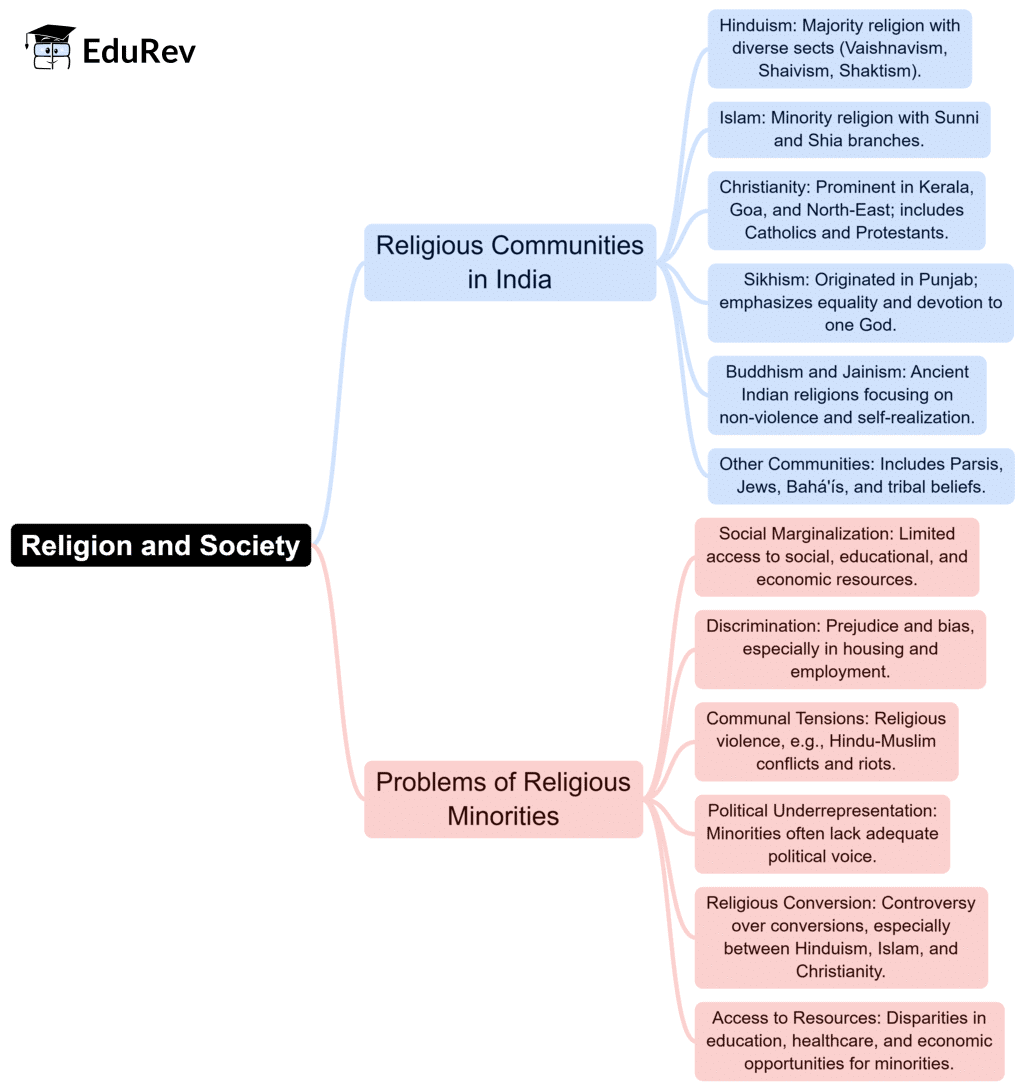UPSC Exam > UPSC Notes > Sociology Optional for UPSC (Notes) > Mind Map: Religion and Society
Mind Map: Religion and Society | Sociology Optional for UPSC (Notes) PDF Download

The document Mind Map: Religion and Society | Sociology Optional for UPSC (Notes) is a part of the UPSC Course Sociology Optional for UPSC (Notes).
All you need of UPSC at this link: UPSC
|
120 videos|427 docs
|
FAQs on Mind Map: Religion and Society - Sociology Optional for UPSC (Notes)
| 1. What is the role of religion in shaping societal values and norms? |  |
Ans. Religion plays a crucial role in shaping societal values and norms by providing a framework for morality, ethics, and behavior. It often influences laws, cultural practices, and social interactions, guiding individuals on how to live harmoniously within their communities.
| 2. How does religion contribute to social cohesion and identity? |  |
Ans. Religion contributes to social cohesion by creating a sense of belonging and shared identity among its followers. It fosters community bonds through shared rituals, beliefs, and values, which help individuals feel connected to a larger group and promote social stability.
| 3. What are the challenges posed by religious diversity in a multicultural society? |  |
Ans. Religious diversity can pose challenges such as potential conflicts, misunderstandings, and discrimination. It requires societies to navigate differences in beliefs and practices, promoting tolerance and dialogue to ensure peace and coexistence among various religious communities.
| 4. In what ways can religion influence political systems and governance? |  |
Ans. Religion can influence political systems and governance by shaping policies, laws, and political ideologies. Religious leaders may hold significant sway over political decisions, and religious beliefs can motivate social movements, impacting the direction of governance and social justice issues.
| 5. How does secularism interact with religion in modern societies? |  |
Ans. Secularism interacts with religion by advocating for the separation of religion from state affairs, promoting religious neutrality in governance. This interaction can lead to debates about religious freedom, the role of religion in public life, and how to balance respect for diverse beliefs while ensuring equality under the law.
Related Searches



















